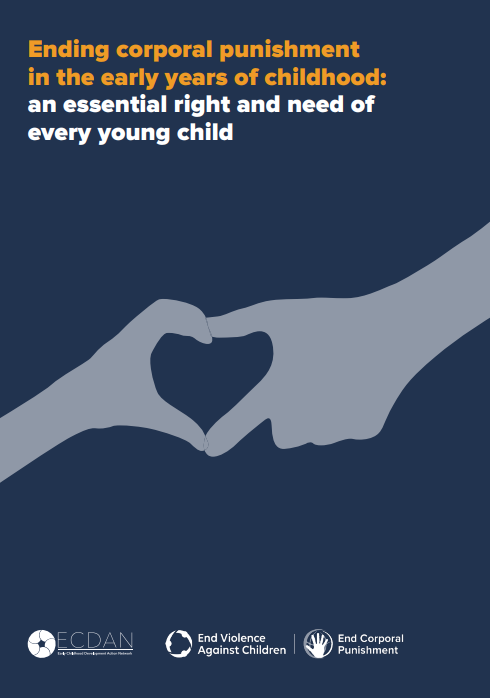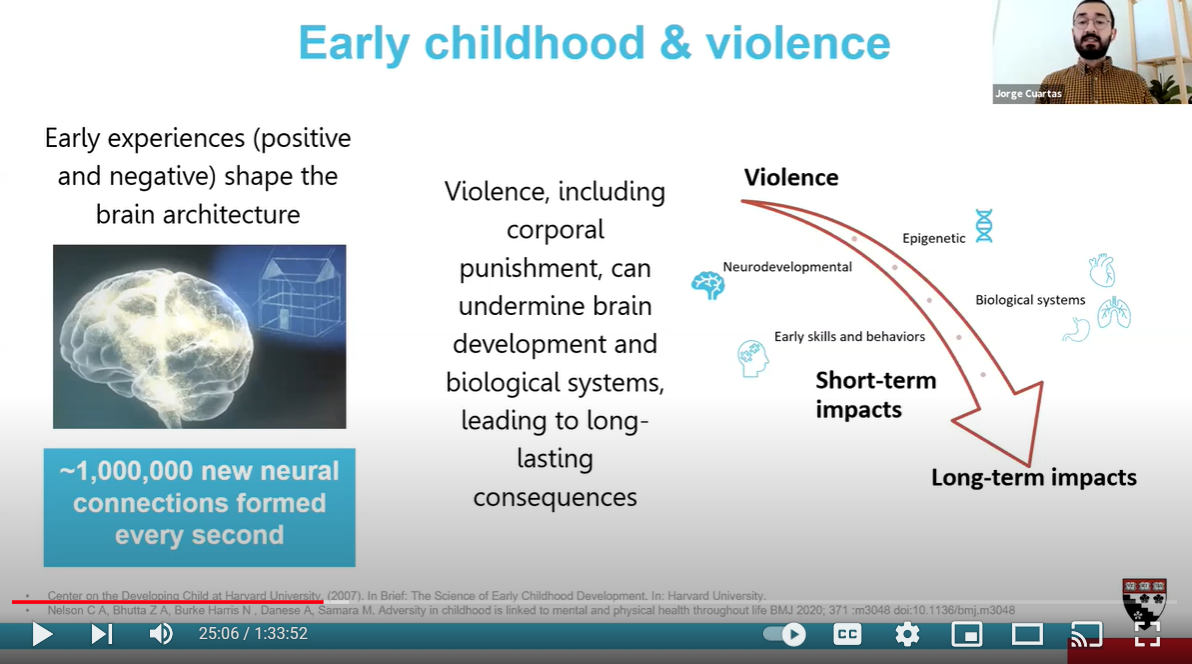Ending corporal punishment in the early years of childhood: an essential right and need of every young child
Over one billion children experience violence every year, with devastating short and long-term consequences for individuals and societies.
Corporal punishment is the most common and widely accepted form of violence against children[1], and most likely to be experienced early in life; studies show that 3 in 4 children under five years are spanked, hit with objects, or beaten as punishment[2]. Sadly, their vulnerability and exposure to violence has increased during the pandemic.
The pervasiveness of violence against young children in the home, childcare, and other settings is particularly concerning as early child development provides the building blocks for lifelong health, educational achievement, economic wellbeing, and societal progress. In the first years of life, children's brain architecture develops rapidly in response to experiences and environments. To achieve their developmental potential, children need nurturing care, including health and nutrition, supportive relationships, and protection from violence. In contrast, exposure to violence can overload children's stress response and other biological systems, disrupt the brain's circuitry development, and lead to long-term negative consequences.
This briefing, authored by Jorge Cuartas with End Violence and the Early Childhood Development Action Network examines evidence from research on the impacts of violent punishment on young children, global prevalence and progress towards universal prohibition, and strategies to end corporal punishment. It adds yet more weight to the call that all countries must take steps to prohibit and eliminate violent punishment of all children without delay.
You can read the briefing here.
Find our briefings and publications on other topics here.
This briefing was launched at our webinar 'Ending corporal punishment in the early years of childhood: an essential right and need of young children' on 17 November 2021.
Dr Erinna C. Dia, Associate Director for Early Childhood Development at UNICEF, described young children’s essential human right and need for non-violent, nurturing care and the urgent global priority of ending corporal punishment in early childhood.
Bess Herbert from the End Violence Partnership talked about prohibition and elimination of corporal punishment.
Jorge Cuartas presented research evidence on the impact of violent punishment in early childhood, and strategies to end it.
Professor Helen Baker-Henningham described her work developing and implementing the non-violent education and parenting programme ‘Irie’, in Jamaica.
And Lalpura Shahi talked about her work as a volunteer parent educator for Save the Children, promoting non-violent parenting in rural Nepal.
Elizabeth Lule, Executive Director of ECDAN and Howard Taylor, Executive Director of the End Violence Partnership closed the event with powerful calls to action.
You can watch the webinar here.
[1] UNICEF (2014), Hidden in Plain Sight: A statistical analysis of violence against children, NY: UNICEF
[2] Cuartas J, McCoy DC, Rey-Guerra C, Britto PR, Beatriz E, Salhi C. Early childhood exposure to non-violent discipline and physical and psychological aggression in low- and middle-income countries: National, regional, and global prevalence estimates. Child Abuse Negl. 2019;92:93-105.


